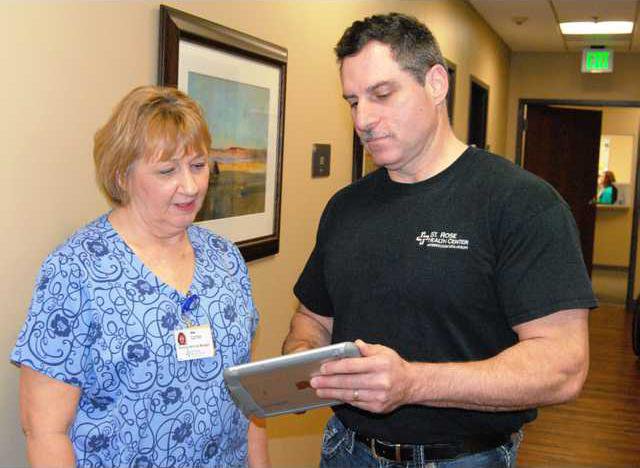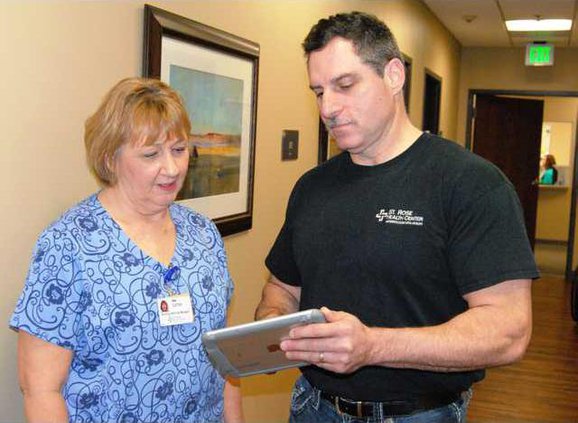When Ed Habash notices a possible warning sign of a heart problem, he now has new technology that allows him immediate access to a cardiologist.
Habash, a physician assistant at St. Rose Health Center, uses an iPad to share detailed information with Hays Medical Center cardiologists whenever he has questions.
HaysMed and Centura Health co-own St. Rose.
“We can send a picture of the EKG and blood-test results to the on-call cardiologist with the iPad,” Habash said. “We also have one-on-one phone conversations about our patient.
“All the cardiologists at HaysMed respond quickly and have been extremely accommodating to me, as well as to my colleagues who also use this technology,” he continued. “This system is great because it allows an informed consultation and guides us to the next step of establishing a plan of care for the patient.”
The iPad comes in handy when someone arrives at St. Rose’s Convenient Care Walk-in Clinic with symptoms that could be heart related or could be something else. It provides clear, easy-to-read information to health-care providers through a secure connection.
“Whenever there is a questionable symptom, we want to conduct diagnostic tests and then seek a consultation with a specialist,” Habash said. “It is invaluable having the HaysMed team working with us one-on-one to determine the disposition of the patient.”
“The result,” Habash added, “is having enough information in the right hands to make a diagnosis and decide on a course of treatment.”
The iPad is just one of many benefits to St. Rose and HaysMed because of their participation in the recently formed Kansas Heart and Stroke Collaborative.
St. Rose, HaysMed and the University of Kansas Hospital recently teamed up with other facilities in Kansas to improve overall outcomes for patients who have suffered a heart attack or stroke, explained Mark Mingenback, St. Rose director of marketing and public relations.
“There will be much more to come in the near future as a direct result of this important collaborative,” Mingenback said. “We are eager to be part of this effort to improve patient education, while networking with other facilities to provide quality health care.”
St. Rose specializes in primary care, prevention and wellness. Services include St. Rose Family Medicine, Convenient Care Walk-in Clinic, Great Bend Internists, imaging, Cardiac Rehab, Special Nursing Services, one-day surgical procedures, Golden Belt Home Health & Hospice and a comprehensive Specialty Clinic. St. Rose is co-owned by Hays Medical Center and Centura Health.








